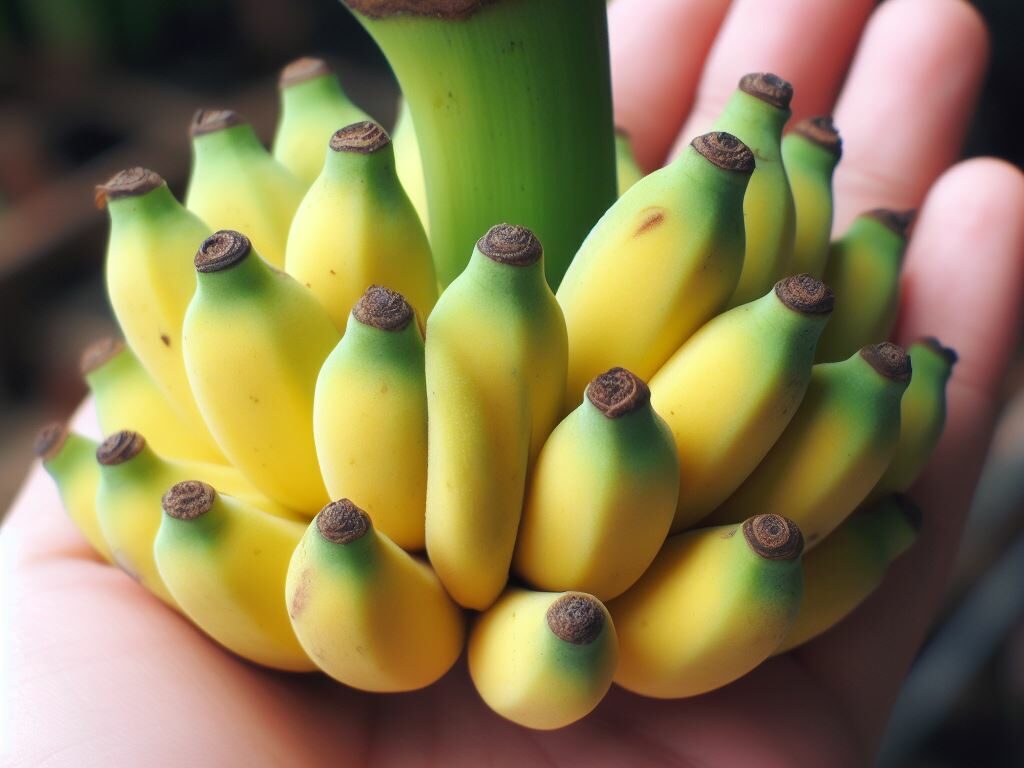Bananas, nature’s pre-packaged snack, are not only delicious but also incredibly nutritious. They come with a natural sweetness and are a rich source of essential vitamins, minerals, and dietary fiber. However, when it comes to consuming these tropical fruits, timing can be a matter of debate. “What is the best time to eat a banana?” is a question many individuals ponder. In this article, we will explore the nuances of when to indulge in this potassium-rich delight, considering various scenarios and the science behind optimal banana consumption.
The Nutritional Marvel of Bananas
Table of Contents
Before diving into the best times to eat bananas, it’s crucial to understand the wealth of nutrients they offer. Bananas are celebrated for several key reasons:
1. Potassium Powerhouse
Bananas are famous for their high potassium content. This essential mineral plays a crucial role in maintaining proper muscle and nerve function, regulating blood pressure, and balancing bodily fluids.
2. Vitamins and Antioxidants
Bananas are a source of various vitamins, including vitamin C, known for its immune-boosting properties, and vitamin B6, essential for brain development and function. They also contain antioxidants that help combat oxidative stress.
3. Dietary Fiber
The dietary fiber in bananas aids digestion, promotes a sense of fullness, and supports a healthy gut. This makes them an excellent choice for those looking to manage their weight and enhance digestive health.
The Best Times to Eat Bananas
Let’s explore the best times to enjoy these nutrient-packed fruits, taking various factors into consideration.
1. Morning Fuel
Eating a banana in the morning is an excellent choice. It provides a quick and sustained energy boost, thanks to the natural sugars, such as glucose, fructose, and sucrose, found in bananas. This energy can help kickstart your day and keep you feeling full until your next meal.
2. Pre-Workout Snack
Bananas are a fantastic pre-workout snack. The combination of natural sugars and potassium makes them ideal for enhancing athletic performance, preventing muscle cramps, and providing an energy boost.
3. Post-Workout Recovery
Consuming a banana after a workout can help with muscle recovery and replenishing lost nutrients. The potassium content is particularly beneficial for preventing muscle cramps.
4. As a Mid-Meal Snack
Bananas are an excellent choice for a mid-meal snack. They can help curb your appetite, preventing overeating during your main meals. This is especially useful for those on a weight management journey.
5. Before Bed
While some believe that eating a banana before bed can promote sleep, the scientific evidence is limited. Bananas do contain tryptophan, a precursor to serotonin and melatonin, which are sleep-regulating hormones. However, the amount of tryptophan in bananas is relatively low compared to other foods like turkey. The impact on sleep quality might be modest at best.
Frequently Asked Questions
- Can I eat a banana on an empty stomach in the morning?
- Yes, eating a banana on an empty stomach in the morning is a healthy choice, providing a quick energy boost to kickstart your day.
- Is it okay to eat a banana before exercising?
- Yes, consuming a banana before exercise can provide you with an energy boost and help prevent muscle cramps.
- Are bananas a good post-workout snack?
- Yes, bananas are an excellent post-workout snack to aid muscle recovery and replenish lost nutrients.
- Can I eat a banana if I’m trying to lose weight?
- Yes, bananas can be part of a weight management plan. They help with satiety, preventing overeating during meals.
- Do bananas help with muscle cramps?
- Yes, the potassium content in bananas can help prevent muscle cramps.
- Is it true that bananas can promote sleep if eaten before bed?
- Bananas contain tryptophan, which is linked to sleep regulation. However, the effect on sleep quality may be modest.
- What is the ideal portion size for a banana snack?
- One medium-sized banana is typically considered a serving. However, portion size can vary depending on individual dietary needs.
Conclusion
In conclusion, the best time to eat a banana depends on your individual dietary goals and lifestyle. Bananas are a versatile and nutritious fruit that can be enjoyed in various ways throughout the day. Whether you’re looking for a morning energy boost, a pre-workout snack, or a post-workout recovery option, bananas have you covered. While some people believe that consuming a banana before bed may promote sleep, the scientific evidence is limited, and the impact on sleep quality may be modest at best. Ultimately, the choice of when to eat a banana should align with your preferences and nutritional needs.

